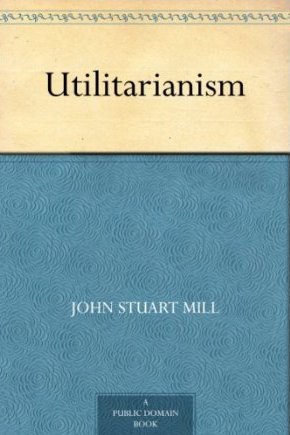More on this book
Community
Kindle Notes & Highlights
Metaphysics of Ethics, by Kant.
being of higher faculties requires more to make him happy, is capable probably of more acute suffering, and is certainly accessible to it at more points, than one of an inferior type; but in spite of these liabilities, he can never really wish to sink into what he feels to be a lower grade of existence.
Men often, from infirmity of character, make their election for the nearer good, though they know it to be the less valuable; and this no less when the choice is between two bodily pleasures, than when it is between bodily and mental.
Capacity for the nobler feelings is in most natures a very tender plant, easily killed, not only by hostile influences, but by mere want of sustenance;
Men lose their high aspirations as they lose their intellectual tastes, because they have not time or opportunity for indulging them;
chimerical,
impugners
The Expedient, in this sense, instead of being the same thing with the useful, is a branch of the hurtful. Thus, it would often be expedient, for the purpose of getting over some momentary embarrassment, or attaining some object immediately useful to ourselves or others, to tell a lie.
casuistry
sanction?
Système de Politique Positive.
The utilitarian doctrine is, that happiness is desirable, and the only thing desirable, as an end;
It maintains not only that virtue is to be desired, but that it is to be desired disinterestedly, for itself.
Those who desire virtue for its own sake, desire it either because the consciousness of it is a pleasure, or because the consciousness of being without it is a pain, or for both reasons united;
the power of habit, and is nowise confined to the case of virtuous actions. Many indifferent things, which men originally did from a motive of some sort, they continue to do from habit.
that will, like all other parts of our constitution, is amenable to habit, and that we may will from habit what we no longer desire for itself, or desire only because we will it.
How can the will to be virtuous, where it does not exist in sufficient force, be implanted or awakened?
Only by making the person desire virtue—by making him think of it in a pleasurable light, or of its absence in a painful one.
CONNEXION
Some maintain that no law, however bad, ought to be disobeyed by an individual citizen; that his opposition to it, if shown at all, should only be shown in endeavouring to get it altered by competent authority.
that any law, judged to be bad, may blamelessly be disobeyed, even though it be not judged to be unjust,
tribunal,
etymology.
Just,
Justum is a form of jussum, that which has been ordered.
that acts which we deem unjust should be punished, though we do not always think it expedient that this should be done by the tribunals.
lament
Whether it be an instinct or a result of intelligence, it is, we know, common to all animal nature; for every animal tries to hurt those who have hurt, or who it thinks are about to hurt,
It is common enough certainly, though the reverse of commendable, to feel resentment merely because we have suffered pain;
predilections.
exigencies
pecuniary
capitation
extrication
inculcating
corollaries
serfs,
patricians
plebe...
This highlight has been truncated due to consecutive passage length restrictions.
laudable


